Transgender refugees train their eyes on the future
With employment opportunities especially scarce for transgender and gender-diverse refugees and migrants, a Johannesburg skills development programme equips them with versatility and hope.
Author:
20 April 2022
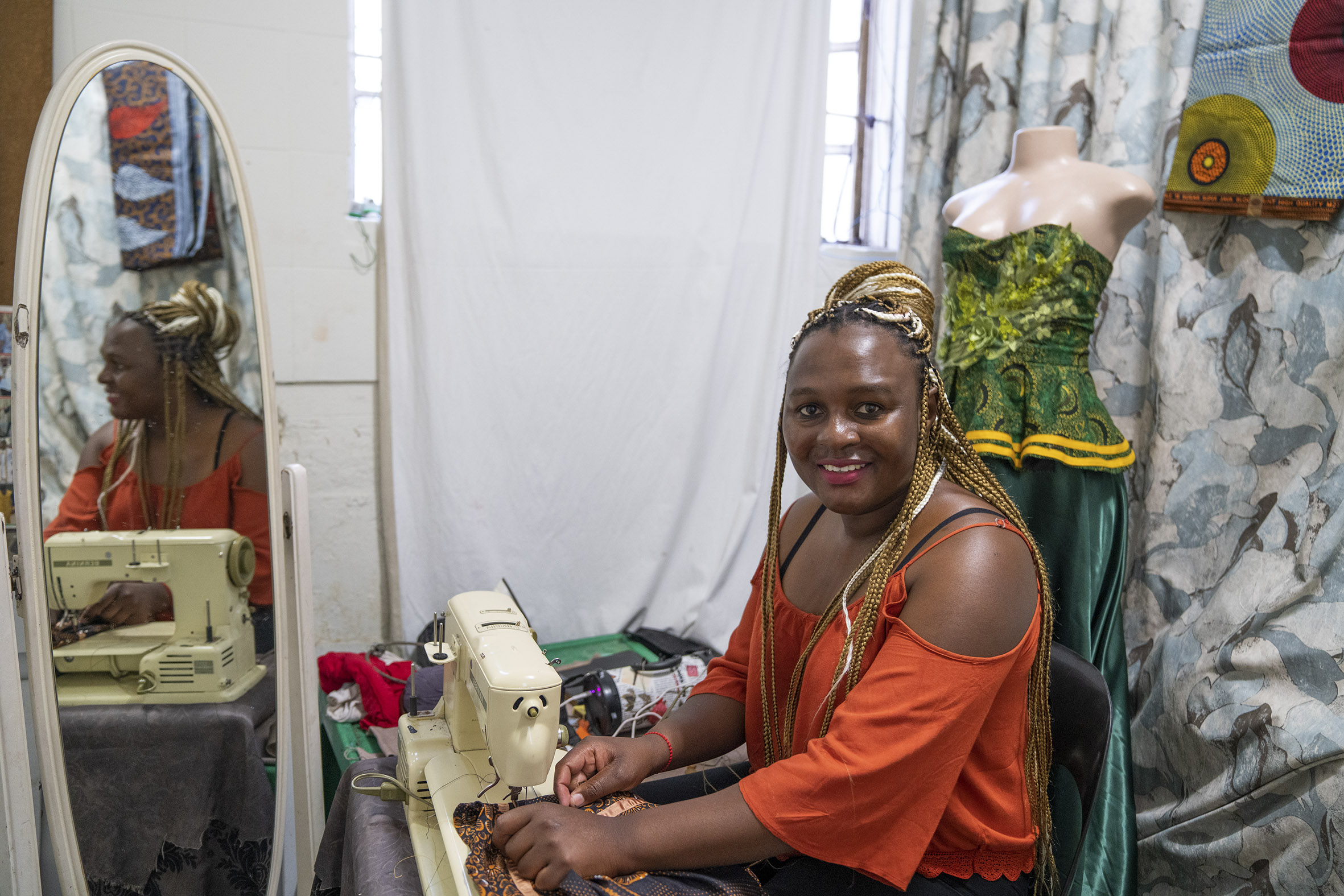
Located in the back of a seemingly abandoned business premises on a busy street not too far outside Johannesburg’s inner city is the room Leona Sibanda calls home. No bigger than 20 square metres, the room contains her bed, positioned behind a curtain serving as a makeshift room divider, a kettle and two-plate stove and, in pride of place in the centre, her sewing machine.
A transgender woman orginally from Zimbabwe, Sibanda fled to South Africa after fearing for her life following the disappearance of another trans woman who had been a close friend. “I think they killed my friend,” she says. Arriving in Johannesburg shortly before South Africa’s first national lockdown was implemented, the 33-year-old initially lived with her sister who encouraged her to start her own business by giving Sibanda her first sewing machine.
“I had that machine, so I approached this Nigerian man, who has a shop close by. I approached him and said, ‘Can I please put my machine just outside here, so that when people walk past, they will see that I’m doing this handiwork?’ He agreed. So I sat there, outside his shop. You know, the sun would hit me. The cold would hit me. But yeah, people got used to me. They came for alterations. They came for this, they came for that,” she says.
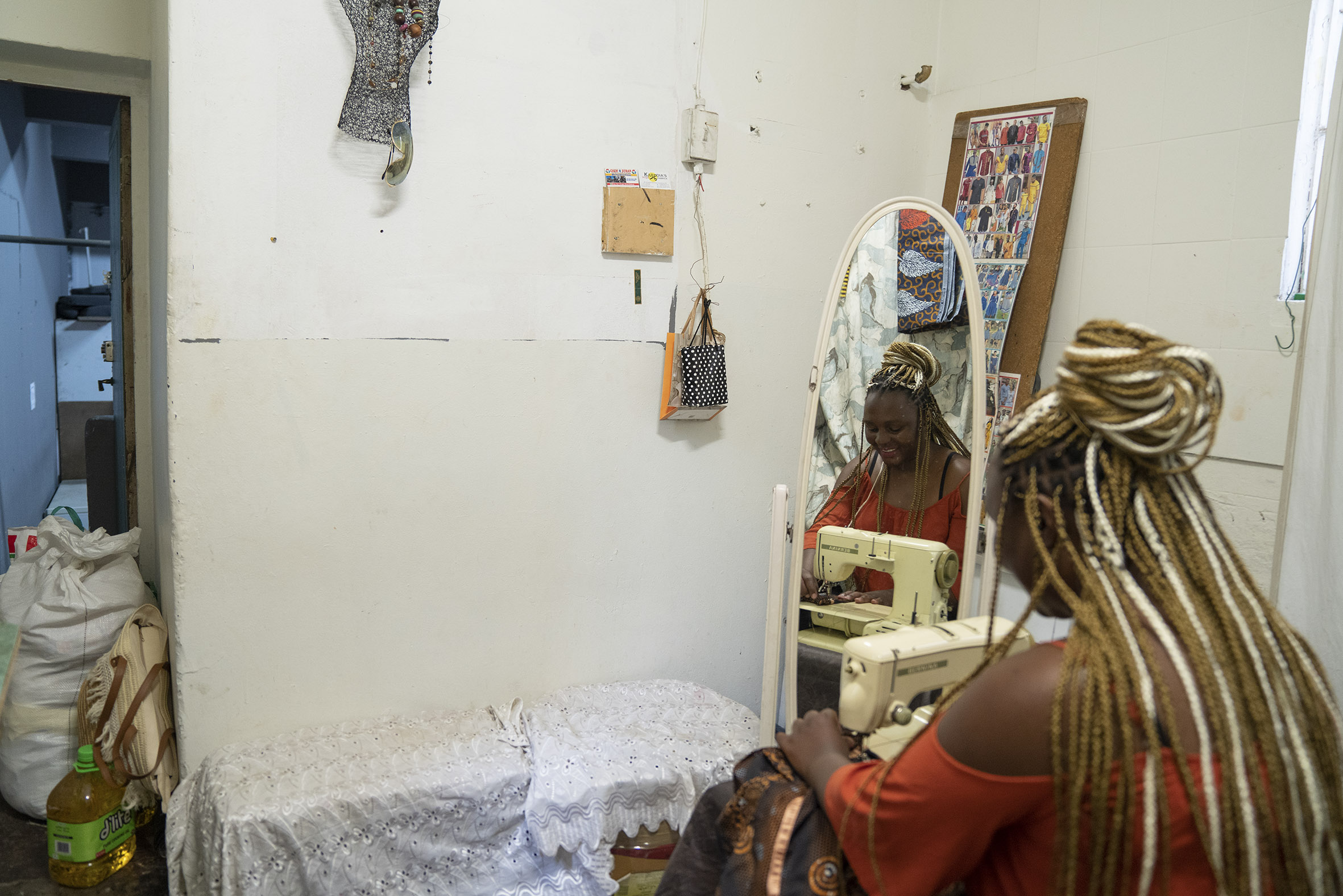
With her clients made up of “people from this community, people that just walk past here”, Sibanda manages to eke out a living and cover the monthly R2 000 rent, which, she laughs, is “a lot, but I have no choice”. To increase her earnings and develop skills as a businesswoman, Sibanda participated in a skills development programme aimed at trans and gender-diverse migrants and refugees living in South Africa.
The Fruit Basket, a non-governmental organisation that focuses on improving the lives of South Africa’s trans and gender-diverse migrants, put together the programme, which ran from November 2021 to February. Thomars Shamuyarira, the organisation’s founder and director, says the programme was initiated “to empower the community and give people skills and tools to become self-sustainable in a country that is not so inclusive. There are not many opportunities for refugees and their undocumented statuses make them more vulnerable.”
Sixteen participants from Uganda, Zimbabwe, Nigeria, Lesotho and two South Africans who migrated to Johannesburg from Limpopo trained in the programme, learning about graphic design, marketing, catering and clothes production.
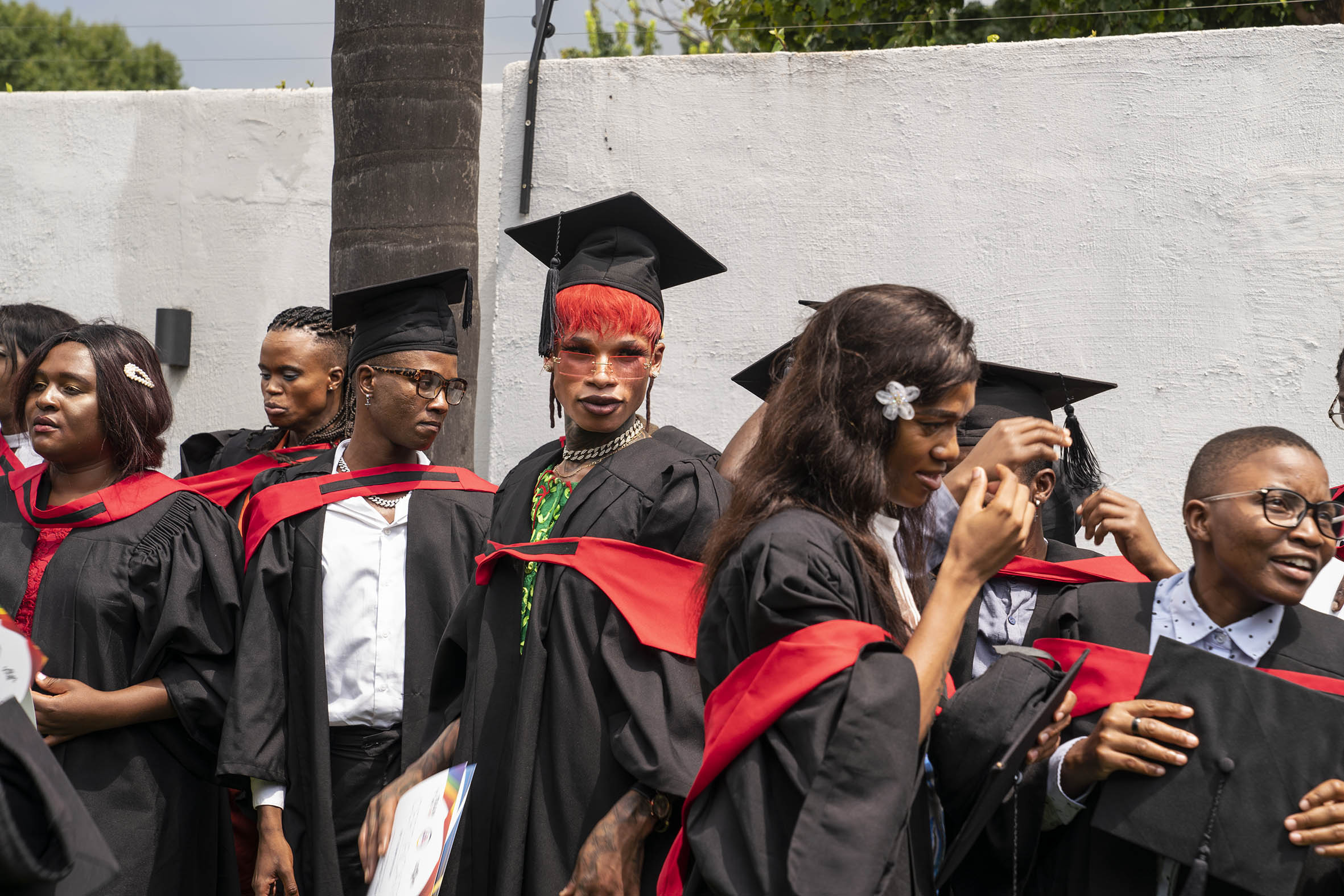
Learning new skills
One of the four participants in the catering programme was Sapphire Jones. Also from Zimbabwe, Jones fled to South Africa nine years ago. With employment options thin on the ground, Jones found herself struggling to survive. “As trans people, we are discriminated against in the workplace and the job sector and we don’t get the jobs that we’re supposed to get because of our gender,” she says.
To “create jobs for ourselves and try creating opportunities for other trans girls as well”, Jones established a small catering business that, along with another transgender Zimbabwean woman, she runs from her flat in central Pretoria.
“I started the business because it was right in the height of the pandemic and I had enough time on my hands. And at the same time, I needed to make a living,” says the 30-year-old. “So I was like, ‘What can I actually do that’s going to give me money?’ So I started out with a few recipes that I had mastered already. And I got to learn what my target market was looking for, or would like from me. And, yeah, I started learning how to prepare those dishes to perfection.”
Targeting working professionals who “usually just want something quick, something on the go”, the pair put together quick meals (burgers, pitas, sandwiches and subs) as well as a few pasta dishes.
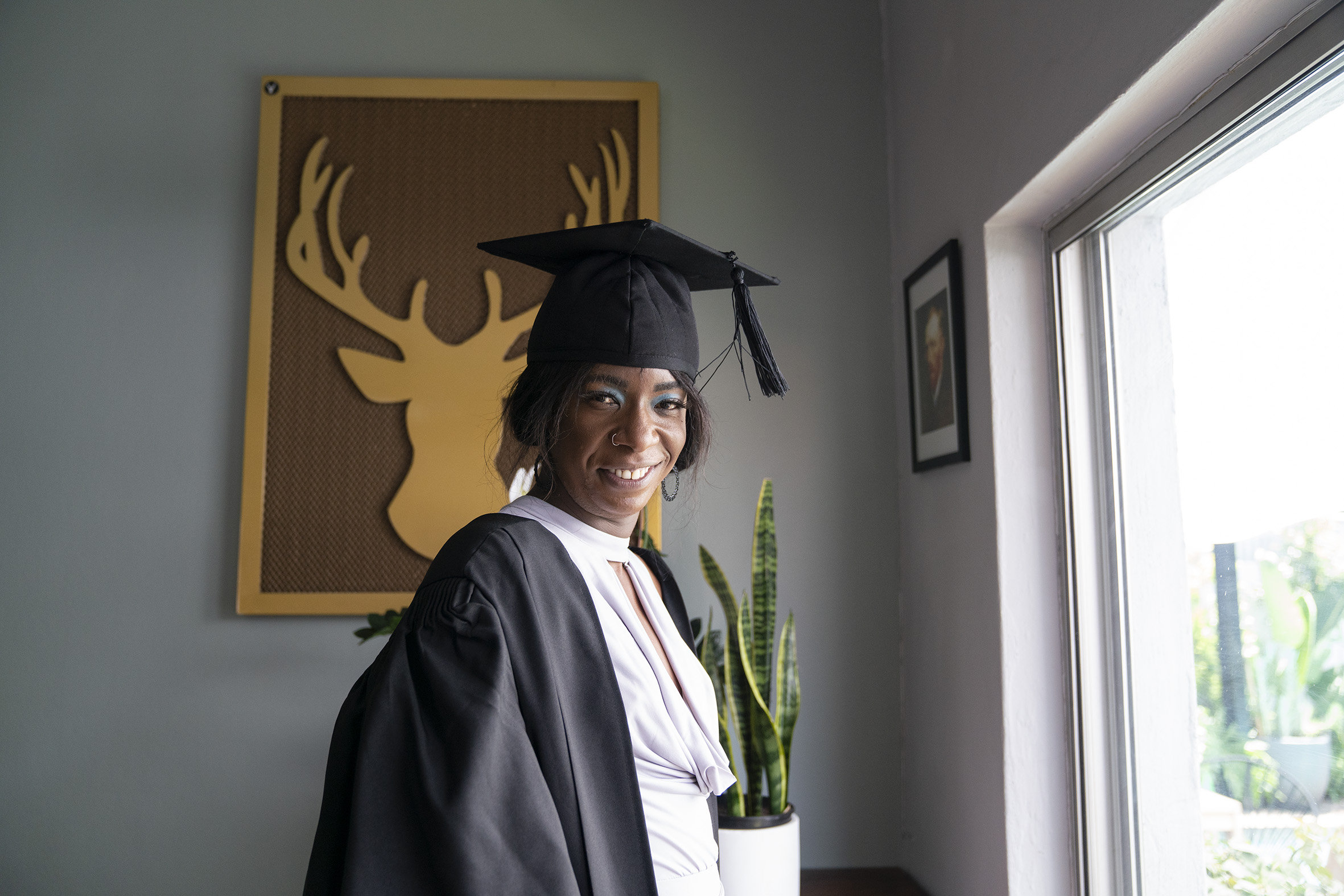
With her business averaging about 15 orders a day, Jones says she participated in the programme “because I wanted to have more to do in the kitchen and also because it wasn’t just about catering. It was catering and business school. We learned about costing, for example. How you are supposed to cost your products, which I had little knowledge of. But now I feel I fully grasp it.”
“The way we did this training has never been done before,” says Shamuyarira. “It also gave community members a chance to learn many different lessons and skills in one go. To hold space for each other. To love and support each other. We had all the meals of the day together and bonded over so many things. Not just our challenges, but also our goals, hopes and ambitions. Friendships and business partnerships were formed and a lot more will come out of this.”
Although Jones says she “had the time of my life learning to make more meals that I had no knowledge of and becoming acquainted with a few people”, she adds that catering is, for now, merely a way to make ends meet.
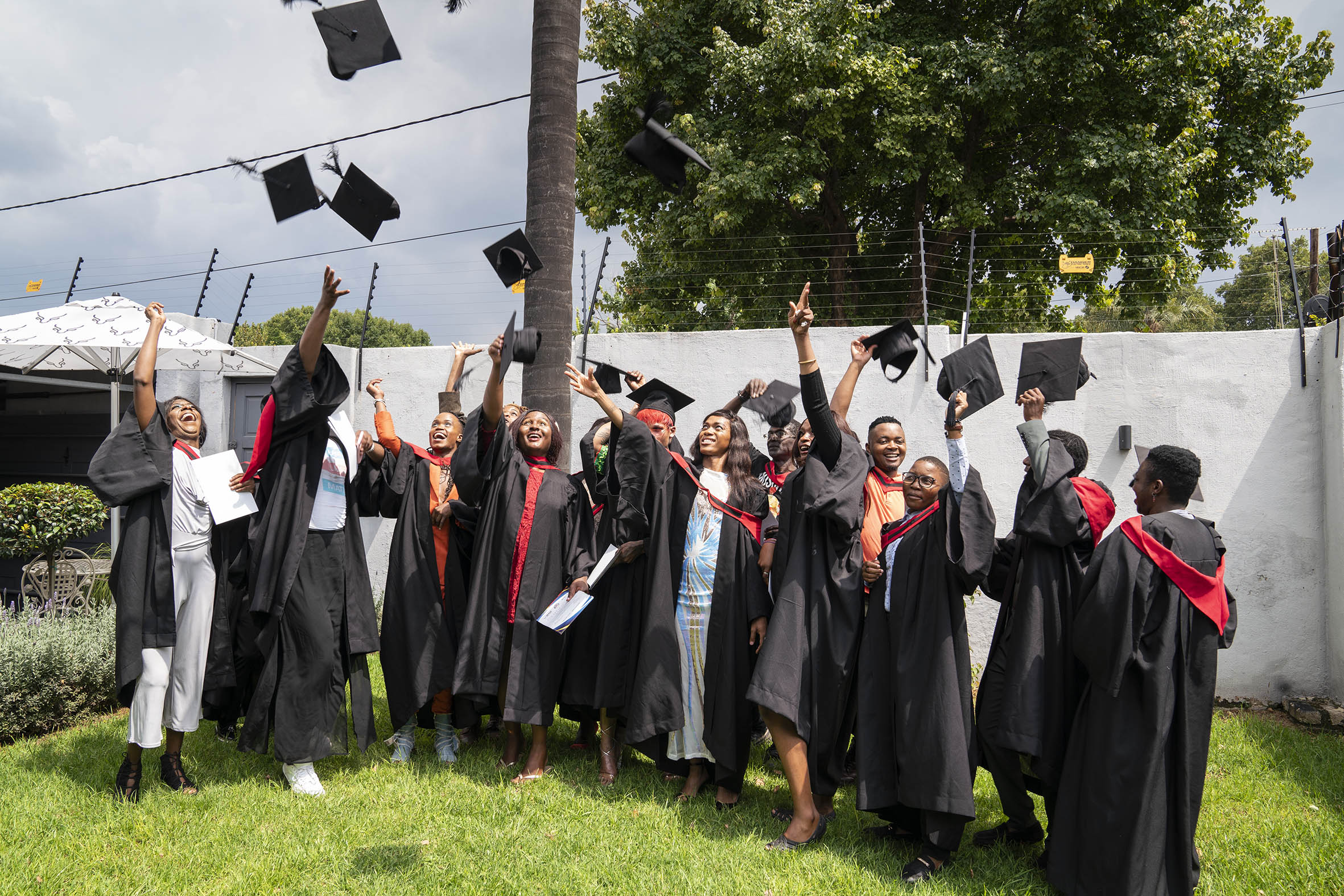
“To be honest, I feel as if I would not want to take up catering as a full-time job. Because when I started my catering business, I also looked into doing other things. That’s when I got together with a few associates and we started an organisation that mainly focuses on trans wellness. So I’ve been busy with that as well. We’re just a couple of months old. So I just want to get everything in a really good place so that it all pays off very well. I really want to make a difference in trans people’s lives,” she says.
Back in her room, Sibanda says the programme was “very, very interesting”. “The part that I loved most about it was being taught about entrepreneurship. But we also talked about us having to be ourselves in order to succeed. Like, you have to choose yourself first, before anything else. Before the business, before friendship, before any relationship, before anything, love yourself first. Then the rest will follow. That is one thing that I came out with from that workshop.”
It’s almost the end of her business day and Sibanda still has to make her way into the central business district to stock up on zips. Readying herself in the mirror, she says that, despite not always feeling safe, her life in South Africa at the moment is “10 out of 10”.
“Like, this space,” she says. “This environment that I came into, it’s not really that toxic. This place is a business area. So most people here, they mind their own business. Nobody really looks into someone’s life and starts to point fingers. And even if they do, they don’t spend much time on it. They’re busy looking for money. We are all just busy looking for money.”
